The School of Public Health (SPH) Advancement Board is comprised of community leaders who are champions of public health. Board members foster closer ties between SPH, our alumni, the philanthropic community, the corporate sector, and the greater regional community.
Board Members
 |
Sanjay Chheda, MBA (Chair) is Vice President at Intellectual Ventures, focusing on new business models for innovation. Among his positions during 18 years at Microsoft was Regional Vice President of its consumer and online business for the Greater Asia Pacific Region. |
 |
Hugh Chang, MS, MBA, holds 25+ years of leadership experience in global health and digital technology initiatives. He has directed multiple programs at the Bill & Melinda Gates Foundation, most recently Maternal Newborn and Child Health. He has also held leadership positions at PATH and Microsoft. He is a proud alumnus of UW’s Department of Bioengineering and serves on its Board of Advisors. |
 |
Jeffrey Lehman, MHA, is owner and president of Dialysis Consulting Group and a clinical associate professor in the School's department of Health Services. He was previously COO of Northwest Kidney Centers and Deputy Director of the WA State Hospital Commission. |
 |
Susan Morgensztern, brings 30 years of experience as a strategic development consultant for new technologies and markets to biotechnology, medical device and diagnostic firms. She is an Expert Reviewer for the Life Science Discovery Fund Authority, a Technology Screening Committee member of WINGS Angel Network, and past Chair of the Board of Trustees of Seattle BioMed. |
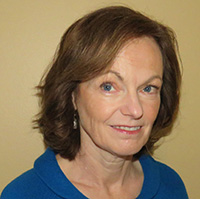 |
Jane Lee Quehrn, MPH, has over 30 years of experience working for state and local public health agencies. Her expertise includes policy development for health improvement based on best practices, community need and social determinants of health. She is a former member of the Group Health Foundation Board of Directors, and is a member of the Public Health Reserve Corps. |
 |
Charles Stevens served as Corporate Vice President of Enterprise Sales and Partner Groups, Vice President of the Far East as well as other executive positions for Microsoft Corporation. He holds an MBA from Harvard University and a Bachelor of Arts degree in English and History from the University of Bristol. Recent board service includes positions with Seattle Children's Hospital, United Way of King County and WebMD. |
 |
Brooks Simpson has over 30 years of experience in medical sales and marketing. He retired from Physio-Control after 20 years of service including senior management positions as Vice President of World Wide Marketing, International, and North American Sales. In 1999, Mr. Simpson founded Pacific Rim Medical Systems, a distributor of cardiovascular devices. |
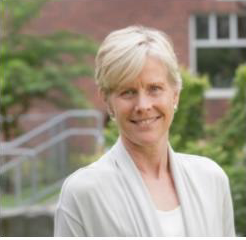 |
Theiline "Ty" Cramer is an active community volunteer. With an MA in International Relations from the Maxwell School of Public Administration at Syracuse University, and a graduate certificate in Global Health from the UW, her interest in global public health stems back to her youth where she spent summers as a vaccination project volunteer in Central and South America. |
 |
Jonathan Drachman, MD, is Chief Medical Officer and Executive Vice President, Research and Development, of Seattle Genetics. He was previously associate professor in the UW School of Medicine, where he remains a clinical associate professor of hematology. |
 |
Christopher Elias, MD, MPH, is president of the Global Development Division at the Bill & Melinda Gates Foundation. Previously he served for 11 years as president and CEO of PATH, which improves the health of people around the world. In 2010, Dr. Elias was the School of Public Health's Distinguished Alumnus of the year. |
 |
Daniel Evans, MS, has a long and distinguished career in public service, including leadership of The Evergreen State College in Olympia, WA., U.S. Senator, and three terms as governor of Washington State. He currently leads his own consulting firm. In 1999, the UW Graduate School of Public Affairs was renamed the Daniel J. Evans School of Public Affairs in his honor. |
 |
Jack Faris, PhD, has led the Pacific Northwest Diabetes Research Institute as well as the Washington Biotechnology & Biomedical Association. He is currently consulting for organizations such as the Washington Global Health Alliance. He has previously held key roles at UW, the Bill & Melinda Gates Foundation, and advertising agency Cole & Weber. |
 |
Jon Fine, MBA, has been president and CEO of United Way of King County since 2000, whose campaign has raised at least $100 million during each of the last five years. Previously he was with the Seattle/King County chapter of the American Red Cross and served in leadership positions in the Puget Sound banking industry. |
 |
David Fleming, MD, is Vice President for Public Impact at PATH, where he leads its programs in maternal and child health, non-communicable diseases, malaria control, HIV/AIDS and TB programs. He was formerly the director and health officer for Public Health – Seattle & King County and has served as Deputy Director of the Centers for Disease Control and Prevention (CDC). |
 |
Leo Greenawalt, JD, MHA, led the Washington State Hospital Association for 20 years. He has also held leadership positions at the Michigan Hospital Association and public policy positions in Washington, DC. In 1999, the American College of Healthcare Executives awarded him its highest honor, the Gold Medal Award. |
 |
Denis Hayes, JD, is President and CEO of the Bullitt Foundation. Years ago he was the National Coordinator of the first Earth Day and eventually expanded the event to 170 nations. He has received the national Jefferson Medal for Outstanding Public Service as well as the highest awards bestowed by the Sierra Club, the Humane Society of the United States, the National Wildlife Federation, among others. At the Bullitt Foundation, Mr. Hayes leads an effort to mold the Pacific Northwest into a global model of sustainability. |
 |
Bill Marler, JD, began litigating foodborne illness cases in 1993, when he represented a seriously injured survivor of the Jack in the Box E. Coli outbreak. Since then he has represented many children across the country in food and water contamination cases. He devotes much of his time to addressing food industry and public health groups about foodborne illness issues. |
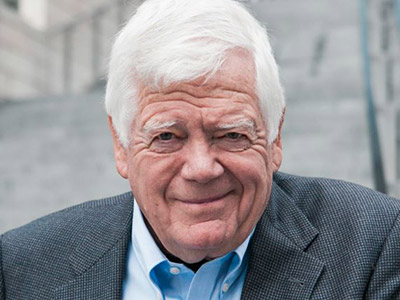 |
Jim McDermott, MD, is a politician and psychiatrist who was the U.S. representative for Washington's 7th congressional district. McDermott served in the Navy Medical Corps as a psychiatrist during the Vietnam War. He was elected to the Washington State Legislature, and for the next 30 years, he advocated for legislation that aids society’s most vulnerable populations — foster children, low-income families, unemployed Americans, and those confronting major illness or disability. |
 |
Nathaniel (Nate) Miles is VP for Strategic Initiatives for Eli Lilly and Company, and a graduate of the University of Washington. He serves on numerous boards, including the NAACP National Foundation, UW Foundation, Pacific Science Center, IslandWood, and is the chair emeritus of the Seattle Urban League. |
 |
Charles Nolan, MD, worked in public health in Seattle and internationally for 30 years, focusing on the epidemiology, prevention and control of communicable diseases, especially tuberculosis. He has participated in the teaching and training programs of the University of Washington's Schools of Medicine and Public Health, where he is a clinical professor in Epidemiology. |
 |
James “Jim” Norman, is a longtime leader of the Pacific Northwest real estate community who has developed strategies for hospital systems, companies, public institutions, universities and investors. He is a principal of Norman Partners, which leverages an organization's real estate in support of goals such as workforce attraction and retention, social responsibility, and stewardship. |
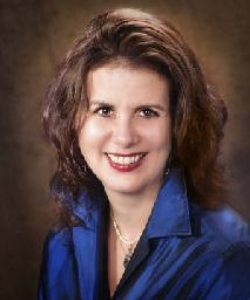 |
Carrie Rhodes is the owner of CDR Farms, which is managed by Rhodes River Ranch, which is dedicated to breeding, raising and training future world champion performance horses. Carrie was a founding member of the Seattle UNICEF Advisory Circle. She now serves on the US Fund for UNICEF’s Northwest Board and is a volunteer leader of The Eliminate Project for the US Fund for UNICEF. Carrie attended Scripps College and Pace University’s Lienhard School of Nursing. |
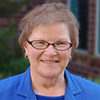 |
Mary Selecky, served as Washington State Secretary of Health for nearly 15 years, beginning in 1998. |
 |
Ron Sher, is the managing partner of Sher Partners, a RE firm specializing in retail properties, including Crossroads Shopping Center in Bellevue, WA. He also founded and owns Third Place Company, former owner of Elliott Bay Books, and founded Great Places Forum, a nonprofit to raise awareness of the importance of great places in building vibrant communities. |
 |
Ron Sims served as Deputy Secretary of the U.S. Department of Housing and Urban Development from 2009 to 2011. Prior to that appointment, Mr. Sims served for 12 years as the elected executive of King County in Washington State. He currently chairs the WA State Health Benefit Exchange Board. |
 |
David Shoultz, MS, PhD, leads PATH's Drug Development program, which develops and ensures access to safe medicines for diseases prevalent in developing countries. Previously he was Director of Grantee & Partner Engagement at the Bill & Melinda Gates Foundation and a member of the foundation's leadership team. Earlier he had been deputy director in the foundation's Global Health program and relationship manager for PATH. |
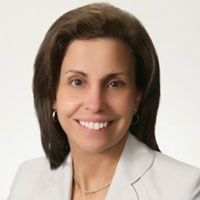 |
Kathy Surace Smith, JD, is Vice President and General Counsel of NanoString Technologies and has previously held leadership positions at SonoSite and Metawave Communications. |
 |
Maurizio Vecchione is president and CEO of Washington Global Health Alliance (WGHA). He is moved by a vision that access to effective and quality healthcare is a human right and critical to equity. He served as the Sr. Vice President of Global Good and Research at Intellectual Ventures (IV). In this role, he oversaw Global Good, IV’s collaboration with Bill Gates to invent and deploy technology specifically focused on improving life in developing countries. |
 |
John Wiesman, DrPH, MPH, was appointed Secretary of Health by Washington Governor Jay Inslee in April 2013. He was inspired to work in public health after reading a 1983 Time magazine article about disease detectives tracking Legionnaires’ Disease, toxic shock syndrome, and HIV. He has worked in four local public health departments in Washington and Connecticut. |
The School of Public Health (SPH) Advancement Board is comprised of community leaders who are champions of public health. Board members foster closer ties between SPH, our alumni, the philanthropic community, the corporate sector, and the greater regional community.
- Community
The Board deepens and extends the reach of the School of Public Health, in particular with philanthropic, corporate, institutional, governmental and nonprofit audiences.
- Awareness
The Board advocates on behalf of the School of Public Health to raise awareness of the School and public health issues in local, national and global arenas.
- Resources
The Board acts to identify and connect potential partners and donors with the School of Public Health.
Member Responsibilities
- Ambassadorship - Serve as ambassadors for the School of Public Health to external audiences, with a focus on the business, government, non-profit and health care communities.
- Fundraising - Identify resources and individuals in the community that can provide financial and other assistance to the School’s educational aims, including community and research partnerships, faculty, student and research support. These activities may include assisting in the identification or recruitment of new Advancement Board members, hosting or attending cultivation and fundraising events, stewarding donor gifts and thanking donors for their support.
- Networking - Assist the Dean by “opening doors” and making introductions to members of the philanthropic and corporate community for purposes of advocacy and fundraising.
- Strategy – Where appropriate, provide feedback on the School’s academic programs, research endeavors, community service and engagement. This includes contributing insights on emerging trends and directions that can be incorporated into School of Public Health’s programs through curriculum, special events, or guest lectures.
- Personal Philanthropy - Maintain membership in the University-wide President’s Club, which recognizes donors who contribute at least $2,000 per year with the expectation of occasional larger gifts to support School of Public Health strategic initiatives and priorities.
Board Membership
Advancement Board members are a select group of alumni, health care, business and community leaders who are committed to promoting the academic and research enterprise of the School of Public Health.
- Members are appointed to three-year terms. After completion of a member’s term, or terms, the individual may be designated as an Advancement Board member emeritus and will be kept informed of significant developments in the School and invited to special events.
Board Meetings and Communication
- The Board typically meets three times per academic year. Board members are expected to attend at least two of these meetings per academic year.
- Board meetings will be co-chaired by the Dean (or their appointee) and the Chair of the Board.
Additional broad-based communication will be facilitated by an email listserv to be maintained by School of Public Health advancement staff.